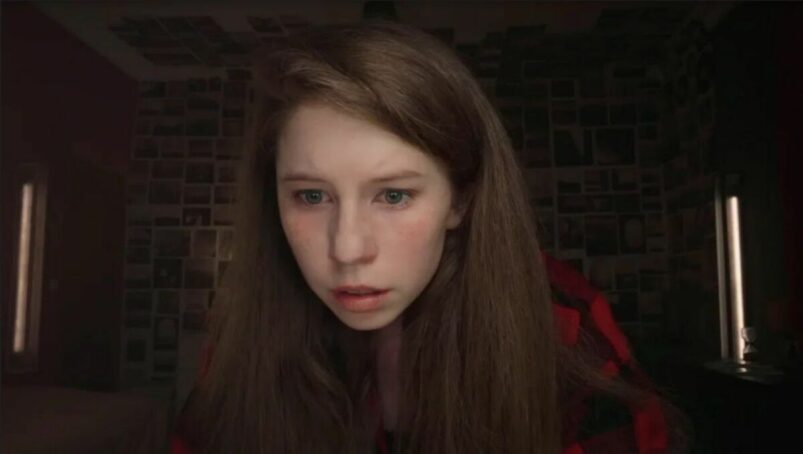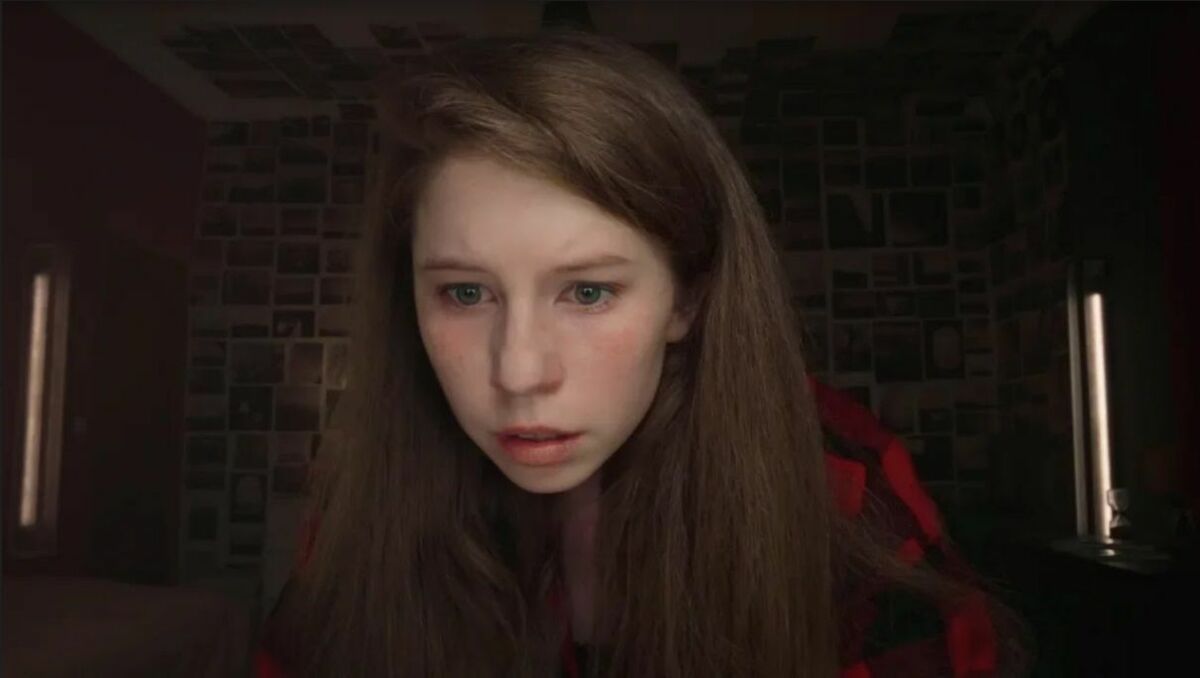Ever since Unfriended, screenlife films have gained much popularity, with films like Searching and Profile being some of the recent movies to adopt the style. With so much of our lives online now, it brings a certain sense of realism to the proceedings, and I’m consistently amazed at how they use the various platforms to stitch everything together. Anna Zaytseva’s debut film #Blue_Whale is the latest in such filmic endeavours, and is based on the real life suicides tied to online death groups. The BBC covered the whole episode in a detailed article, though with stories like this, it’s hard to know where to start, and trying to trace things up the ladder just ends in futility.
#Blue_Whale begins after Dana’s (Anna Potebnya) sister Yulya commits suicide by throwing herself in front of a moving train. Dana, who had a volatile relationship with her sister, is left grieving and heartbroken, especially since her mother blames her for her sister’s suicide. Because her computer was damaged after an altercation with her sister, she uses Yulya’s laptop and discovers her sister’s participation in an online death group. Dana decides to infiltrate the group and document the process in order to find out who the curators are and unmask them.
There are a series of tasks and participants in the group must complete each task to move to the next level. If they fail, they are removed from the group and all evidence of their involvement disappears. Some tasks are generic, and others are tailored specifically to the individual. But they all have one common aim: to isolate you from the people who love you, and feel a sense of emptiness with regard to your own life. By the end, participants are so removed from who they are and so detached from everything that taking their own lives seems like the only way forward. Do note that the film does have images of self-harm, so you might want to give it a skip if you find such content triggering.
What I love about Zaytseva’s film is how seamless the entire thing is. There isn’t any awkward pausing as we move to different platforms, with match-cuts used effectively to leap to different locations. Even in Aneesh Chaganty’s Searching, there were moments where the screenlife-format felt a bit forced (like where did this camera footage come from?), but this was never the case for #Blue_Whale, which keeps the viewer on a constant adrenaline-pumping journey. My food delivery actually came while I was in the midst of watching this, and I was so hooked that I could barely bring myself to pause and answer the door.
Ironically, because the visuals are so well-framed and nicely-lit, this might alienate some viewers, since most of us don’t handle our phone cameras with such cinematographic ease. Also, since the film is about unmasking a perpetrator, you know it has to be one of the handful of people we have been introduced to. I do wish the film had been less formulaic since its dependence on slasher tropes leaves us with an unsatisfactory third act.
It’s also interesting that while Zaytseva’s film has the characters conversing in Russian, the on-screen text conversations are in English. But it totally makes sense, since to lay out subtitles for each text message would slow the film down. This way, there’s an authenticity to the setting, and the film also gets more of an international audience at the same time.
Dana makes for a good protagonist; she is strong and as fiery as her red hair, flinging herself down the rabbit hole with such determination that we can’t help but worry that she might lose herself in this entire process. She doesn’t, but there are many who do. Her burgeoning romance with fellow participant Lesha will leave the viewer engrossed, so kudos to both actors for allowing us to feel the chemistry between Dana and Lesha (Timofey Eletskiy), especially when their physical interactions are so minimal.
There is such a sense of pathos here for these young people who turn to social media to alleviate some of their hurt, and these groups prey on their vulnerabilities to urge them closer to death for some sadistic enjoyment. However, these administrators aren’t all built from the same cloth. Some of their real lives are so drenched with problems – abusive home life, negligible social life – that they turn to these platforms to feel a sense of power missing from their own lives. It’s just a tragic situation all around.
While it sensationalises things a bit too much, there is nonetheless an urgency to Zaytseva’s film that brings to the forefront a subject that we as a society still don’t quite know how to deal with. Yes, there is more discourse now on mental health, but young people still struggle to communicate their issues, especially if they feel like their parents just won’t understand. With a pandemic still raging on, it’s easy to become disconnected to everything, and conversely, the motivation to hold on to life becomes increasingly difficult when it seems like the world is burning.
There is no denying that #Blue_Whale is a well-made film with important themes at the heart of it, and certainly worth the watch for fans of screenlife.
Review screener provided.
READ NEXT: 5 Movies To Watch For Mental Health Awareness Week 2021
Some of the coverage you find on Cultured Vultures contains affiliate links, which provide us with small commissions based on purchases made from visiting our site.


